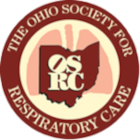The committee heard proponent testimony from Dr. Karen McCoy, a pediatric pulmonary specialist at Nationwide Children’s Hospital, and five witnesses from the Ohio Society for Respiratory Care (OSRC).
McCoy said a shortage of 1,300 to 12,000 cardiologists and pulmonologists is expected nationally by 2030 and that is made “more concerning” by the fact that three of the five leading causes of death involve the cardiopulmonary system. Rural areas face an even more dire shortages, as some do not have any qualified providers for advanced cardiopulmonary management.
She said creation of the Advanced Practice Respiratory Therapist (APRT) position will help to address that, and clinical training has been provided at Nationwide and the Ohio State University Medical Center since 2021. McCoy described how hospital bed demand has increased in general and especially during the pandemic, as some patients had to be transported to out-of-state hospitals to receive a bed.
APRTs could help chronically ventilated children by providing care in their homes, relieving ICU space for “more appropriate and efficient use,” McCoy said. The position would also provide a path for professional growth and advancement, similar to registered nurses who become advanced practice nurses.
She and Rep. Liston discussed other benefits to APRTs, with McCoy saying their knowledge of respiratory equipment can be useful in a variety of settings including sleep clinics. She also told Liston that telehealth services and respiratory care don’t go well together.
OSRC President Nancy Colletti said APRTs would have at least master’s degree completion of a curriculum equivalent to other advanced practice providers. The scope of their work would be managing the care of patients with cardiopulmonary disorders and conditions under the supervision of physicians who are specialists in cardiopulmonary medicine. The new position is not an attempt to intrude on other advanced practice providers’ scope, she continued, and APRTs would not be able to work in general practice.
Colletti also said APRTs could help address current and future needs of Ohioans with ailments such as COPD, asthma, occupational lung disease, smoking cessation, pulmonary fibrosis, pulmonary hypertension, sleep-related disorders, pneumonia, respiratory failure and COVID-related lung damage. Those will only increase as Ohio’s population ages, she added.
Liston asked if other states are looking at licensing APRTs. Colletti said North Carolina, Illinois and Texas are among ones that are.
In response to Rep. T. Young, Colletti said there are around 8,000 respiratory therapists in Ohio now and discussed how current respiratory therapists could become APRTs if the bill is passed. She noted that will require the supervisory agreements.
OSRC Legislative Committee Chair Courtney Kallergis gave similar comments on the need for APRTs due to the aging pulmonary care workforce and the use of advanced practice providers to expand health care access in other fields. She also described OSRC’s work to help develop the bill.
Ranking Member Somani and Chair Cutrona asked how the bill would ensure more care is available in rural areas. Kallergis said the growth of the profession as a whole would help it expand beyond larger cities. She also told Cutrona the APRT curriculum is “robust” and would ensure competency, and detailed to Liston their work with other stakeholders.
Rep. Brewer asked if people who studied in Ohio could leave for other states after graduating, and how diversity would be assured in the new workforce. Kallergis responded to the first point that students are currently learning while they do not have an available license to practice. Making Ohio one of the first to create the license will help retain them, she continued. OSU is the only place offering that education and it is committed to diversity as well, Kallergis said.
Sarah Varekojis, a member of the OSRC Legislative Committee and director of the APRT graduate education program at OSU, detailed the history of the program. Three student cohorts have graduated since 2021, with one graduate hired by the Veterans Affairs Maryland Health Care System and two others likely to work there in the near future as well.
She told Young the rest of the graduates previously worked as respiratory therapists and leveraged their new education into leadership roles while they wait for APRT licensure to be created. Varekojis shared other details on the program in response to Liston, and described how APRT-related billing would work in response to Rep. Gross. She also told Gross APRNs and APRTs would have a very complementary role and said that providing care sooner could reduce health care costs.
Dr. Emily Amin, a practicing pulmonary and critical care physician, also described the need for APRTs.
She and McCoy discussed technical aspects of the potential APRT work in response to Rep. Baker. Amin also told Cutrona the APRT would bring a “unique background” and expertise on the equipment.
